Recently, a Facebook post by account D.HV has attracted attention with more than 76,000 likes, 41,000 shares, more than 24,000 comments as of May 17, after 2 days of posting. In the article, Mr. V. shared his personal experience of sleeping in a closed air-conditioned room, leading to prolonged fatigue, headaches, rapid heartbeat, insomnia - even though the room temperature was maintained at a comfortable level, 26-27 degrees Celsius.
The author of the article believes that the cause is not due to cold temperature but due to lack of oxygen and high CO₂ concentration in the closed space. To verify, he used a CO₂ meter and found that the morning index was up to 2,000 ppm, while the safe level is only below 700 ppm. He warned that sleeping for a long time in such a closed space can cause a series of health problems, especially in the elderly and children.

The shared article attracted the attention of many people.
PHOTO: SCREENSHOT
From the perspective of someone who has been a hairdresser for more than 13 years and has been in contact with tens of thousands of customers, Mr. V. said that many cases of hair loss, stress, and prolonged fatigue can be related to the habit of sleeping in an air-conditioned room without ventilation. The article concludes with a call to share this information so that "who knows, maybe your sisters, children, or parents are sleeping in a room without oxygen."
The article has received widespread attention, with many commenting on similar experiences. However, there are also many opposing opinions, saying that this information lacks scientific basis and can cause unnecessary panic.
An adult releases about 120-160 liters of CO2 in 8 hours of sleep.
On May 17, Dr. Nguyen Huy Hoang, an expert at the Vietnam - Russia High Pressure Oxygen Center ( Ministry of Defense ), said that an adult releases about 120-160 liters of CO 2 in 8 hours of sleep in a 20 m² room (volume 60 m³). The amount of CO 2 increases proportionally to the number of people in the room. In addition, if the room is closed and the door is closed to keep it cool, reducing natural air exchange will create conditions for CO 2 to accumulate.
"Many people mistakenly think that air conditioners will filter and refresh the air in the room. In fact, most air conditioners with 2 hot and cold coils (the common type in Vietnam) do not bring fresh air from outside. They only suck in air in the room, cool it through the cold coil, and blow it back into the room. Closing the door to save energy reduces natural ventilation, causing CO2 to accumulate faster," Dr. Hoang analyzed.
In Singapore, closed bedrooms using 2-unit air conditioners often have CO₂ concentrations exceeding 1,000 ppm, commonly in the range of 1,500-1,900 ppm.
CO₂ concentrations and health effects
According to Dr. Hoang, research from the Technical University of Denmark (DTU) shows that CO₂ concentrations of just 1,150 ppm begin to impair sleep quality, affecting sleep depth and causing sleepers to wake up easily in the middle of the night. Above 2,000 ppm, symptoms of fatigue, poor concentration, and reduced cognitive performance begin to become apparent.
For people with weakened immune systems such as the elderly, young children, and those with underlying respiratory conditions, the risk is even greater. They may be affected by lower than normal CO₂ concentrations.
The accumulation of CO₂ not only affects the physical body but also indirectly causes stress, through disrupting the biological sleep-wake rhythm, activating the body's stress response such as increased heart rate and irritability. Some studies also suggest that stagnant air in air-conditioned rooms also increases the feeling of simmering stress, which is difficult to detect but has long-term psychological effects.
Although there is no scientific evidence to confirm that CO₂ causes hair loss, Dr. Hoang believes that related factors such as stress, poor sleep and the accumulation of fine dust can indirectly contribute to this condition.
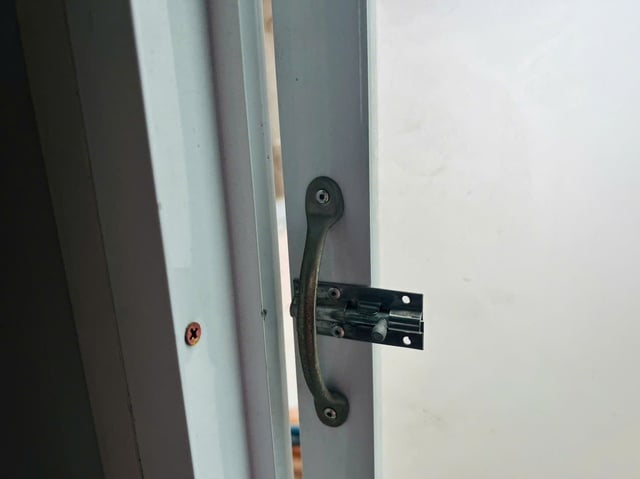
Experts recommend keeping gaps or windows open while sleeping to allow for air exchange.
PHOTO: LE CAM
What to do to avoid "CO₂ gas trap" when turning on air conditioning in a closed room
There is no need to give up air conditioning, but users need to change their habits to control CO2 . Below are some solutions recommended by Dr. Nguyen Huy Hoang.
- Leave the window open 5-10 cm while sleeping or at least open it a few times during the night to allow air exchange.
- Use a ventilation fan or air conditioner with fresh air, prioritize high-end models with CO₂ sensors.
- Install a CO₂ meter in your bedroom for real-time monitoring.
- Clean the air conditioner regularly and maintain humidity at 40-60% to aid breathing.
- Avoid placing too many plants in the bedroom because at night, plants also… emit CO₂.
In the long term, Dr. Hoang recommends long-term research on the effects of moderately high CO2 concentrations in sensitive groups, development of efficient, affordable integrated ventilation air conditioners, and housing design that prioritizes natural and mechanical ventilation.
Source: https://thanhnien.vn/mo-dieu-hoa-dong-kin-cua-gay-mat-ngu-met-moi-rung-toc-bac-si-noi-gi-185250517162523186.htm



![[Photo] Editor-in-Chief of Nhan Dan Newspaper Le Quoc Minh received the working delegation of Pasaxon Newspaper](https://vphoto.vietnam.vn/thumb/1200x675/vietnam/resource/IMAGE/2025/9/23/da79369d8d2849318c3fe8e792f4ce16)
![[Photo] Prime Minister Pham Minh Chinh chairs the 14th meeting of the Steering Committee on IUU](https://vphoto.vietnam.vn/thumb/1200x675/vietnam/resource/IMAGE/2025/9/23/a5244e94b6dd49b3b52bbb92201c6986)
![[Photo] The 1st Congress of Party Delegates of Central Party Agencies, term 2025-2030, held a preparatory session.](https://vphoto.vietnam.vn/thumb/1200x675/vietnam/resource/IMAGE/2025/9/23/e3a8d2fea79943178d836016d81b4981)
![[Photo] General Secretary To Lam meets voters in Hanoi city](https://vphoto.vietnam.vn/thumb/1200x675/vietnam/resource/IMAGE/2025/9/23/d3d496df306d42528b1efa01c19b9c1f)
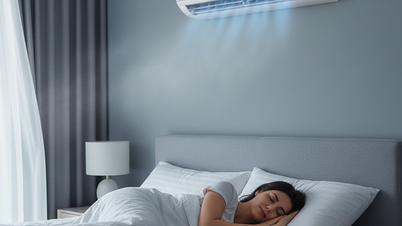














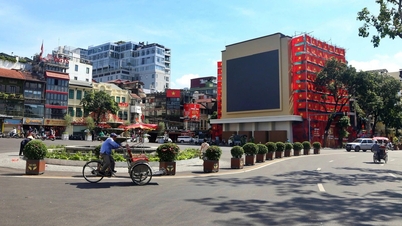



































































Comment (0)